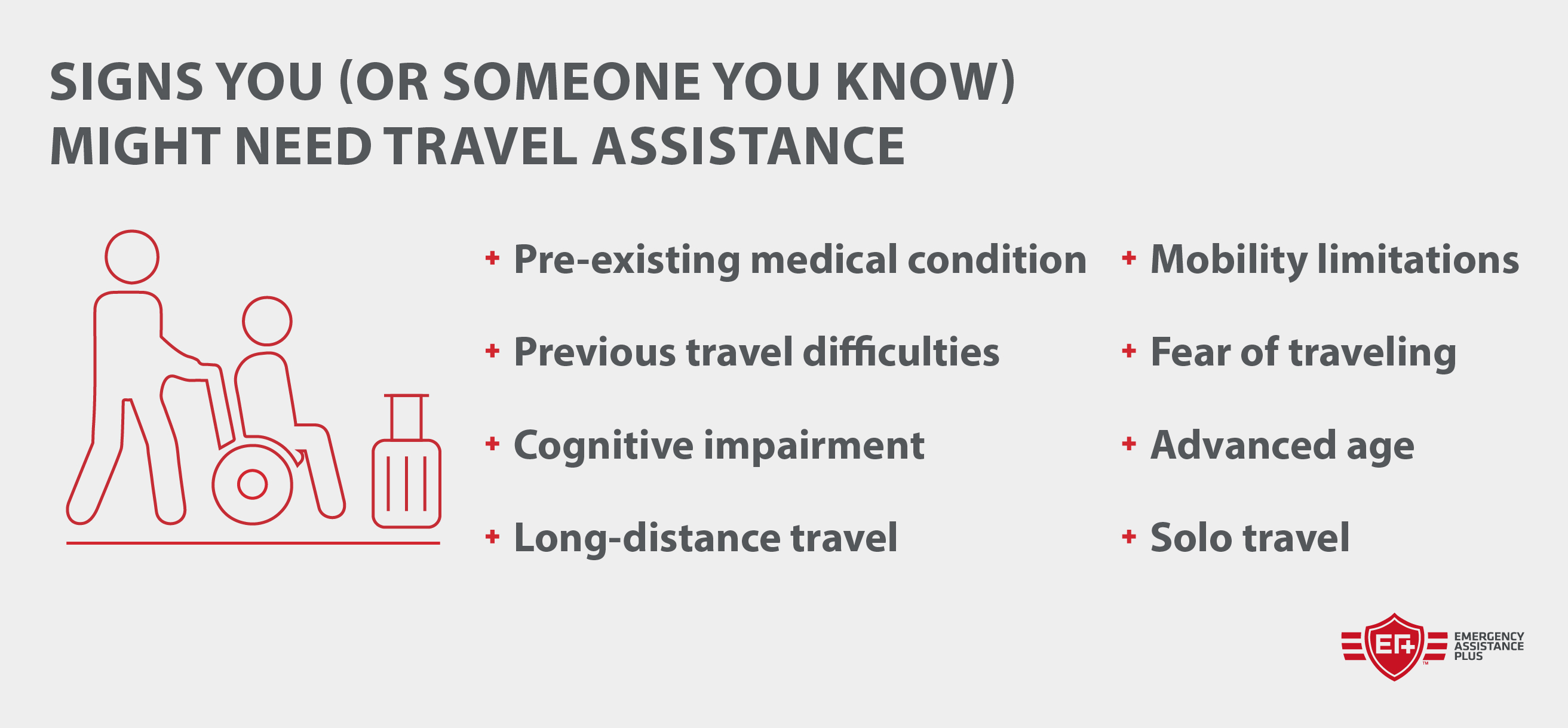Assisted travel for elderly individuals is gaining prominence as the senior population grows. This burgeoning field encompasses a wide range of services designed to make travel accessible and enjoyable for older adults, addressing diverse mobility needs and preferences. From specialized tour operators catering to specific health conditions to accessible public transportation options and the increasing role of technology, this article delves into the multifaceted world of ensuring safe and comfortable journeys for seniors.
This exploration examines various modes of assisted travel, including private car services, adapted public transportation, and specialized tour operators, weighing their respective advantages and disadvantages. We also cover crucial accessibility features in various travel settings, essential planning steps, safety considerations, and the significant emotional and social benefits of travel for older adults. Finally, we explore the financial aspects and the technological advancements enhancing senior travel experiences.
Types of Assisted Travel for the Elderly

Planning travel for elderly individuals requires careful consideration of their specific needs and limitations. Choosing the right mode of transport is crucial for ensuring a safe, comfortable, and enjoyable experience. This section examines various options available, weighing their advantages and disadvantages.
Get the entire information you require about emo drawing ideas on this page.
Private Car Services
Private car services offer door-to-door transportation tailored to individual needs. Services often include assistance with luggage and mobility aids. Drivers are typically trained to handle the specific requirements of elderly passengers.
| Type of Travel | Advantages | Disadvantages | Cost Considerations |
|---|---|---|---|
| Private Car Services (e.g., UberXL, specialized senior transport) | Direct door-to-door service, personalized assistance, flexibility in scheduling, potential for wheelchair accessibility. | Higher cost compared to public transport, potential for longer wait times depending on availability, limited coverage in some areas. | Varies significantly depending on distance, service provider, and additional assistance required. Expect higher costs than public transport. |
Specialized Tour Operators
Several tour operators cater specifically to the needs of senior travelers. These companies often offer itineraries designed for slower paces, with fewer strenuous activities and more emphasis on relaxation and comfort. They may also provide specialized assistance, such as accessible transportation and on-site support.
| Type of Travel | Advantages | Disadvantages | Cost Considerations |
|---|---|---|---|
| Specialized Senior Tours | Tailored itineraries, accessible transportation, assistance with activities, social interaction with peers, reduced physical exertion. | Significantly higher cost than independent travel, less flexibility in itinerary, may cater to a specific age group or interest. | Costs vary widely based on destination, duration, level of assistance, and amenities included. Expect premium pricing. |
Public Transportation Adaptations
Many public transportation systems are adapting to better serve elderly passengers. This includes features such as wheelchair ramps, accessible seating, and priority boarding. However, the level of accessibility varies significantly depending on the location and the specific transport system.
| Type of Travel | Advantages | Disadvantages | Cost Considerations |
|---|---|---|---|
| Adapted Public Transportation (Buses, Trains, etc.) | Generally lower cost compared to private options, wider coverage area, often convenient for shorter distances. | May require more physical effort for boarding and navigating, potential for overcrowding and limited seating, accessibility varies significantly by location and system. | Typically less expensive than private transport, costs vary depending on distance and fare structure. |
Planning and Booking Assisted Travel

Planning a trip for an elderly loved one requires meticulous attention to detail, ensuring comfort, safety, and accessibility throughout the journey. This involves careful consideration of their specific needs and preferences, and proactive booking of appropriate services. Failing to plan thoroughly can lead to significant stress and discomfort for both the traveler and their companions.Planning a successful assisted travel experience begins with a comprehensive assessment of the elderly person’s physical and cognitive abilities.
This crucial step informs every subsequent decision, from choosing the destination and mode of transportation to selecting suitable accommodation and arranging for necessary support services.
Assessing Needs and Choosing a Destination
Before booking anything, a thorough assessment of the traveler’s needs is paramount. Consider their mobility limitations, any medical conditions requiring special attention, and their preferred travel style. For example, someone with limited mobility might benefit from a trip with minimal walking and easy access to amenities. A destination with good healthcare infrastructure is also crucial, especially for individuals with pre-existing health conditions.
The climate of the chosen destination should also be carefully considered, avoiding extremes of heat or cold that could exacerbate health problems. A shorter trip, initially, might be advisable to gauge the traveler’s tolerance for travel.
Booking Flights and Transportation
Booking flights requires careful consideration of accessibility. Airlines offer various services for passengers with disabilities, including wheelchair assistance, pre-boarding, and extra legroom. Contacting the airline directly well in advance to arrange these services is essential. For ground transportation, consider pre-booked wheelchair-accessible taxis or private car services. Public transportation may not always be fully accessible, so research is crucial.
In some cases, arranging for a personal caregiver to accompany the traveler throughout the journey may be necessary.
Selecting Accessible Accommodation
Accommodation should prioritize accessibility. Look for hotels or resorts that offer wheelchair-accessible rooms, ramps, elevators, and grab bars in bathrooms. Consider proximity to amenities and ease of access to medical facilities. Websites specializing in accessible travel often provide reviews and ratings of hotels based on accessibility features. Booking directly with the hotel allows for specific requests and confirmation of accessibility features.
Arranging for Support Services
Depending on the individual’s needs, arranging for support services may be necessary. This could include hiring a personal caregiver to provide assistance with daily tasks, or arranging for in-home healthcare services at the destination. Consider the availability of medical facilities and emergency services near the accommodation. It’s also wise to have a comprehensive medical plan that covers emergencies and unforeseen circumstances.
Contacting local healthcare providers in advance to confirm their ability to cater to specific needs is beneficial.
Utilizing Specialized Travel Agencies and Resources
Several travel agencies specialize in arranging assisted travel for elderly individuals. These agencies possess the expertise to navigate the complexities of planning accessible trips, ensuring a smooth and comfortable experience. Websites such as [Insert example of a reputable assisted travel website here, if available and verifiable] often provide resources and information on accessible travel options. Many senior-focused travel organizations also offer tailored packages designed to meet the needs of older travelers.
Sample Itinerary: A Three-Day Accessible City Break, Assisted travel for elderly
This sample itinerary illustrates a potential three-day trip to a city with good accessibility. Adaptations would be needed depending on the individual’s needs. Day 1: Arrival at the airport, transfer to a wheelchair-accessible hotel with elevator access. Afternoon: Guided tour of accessible city attractions, using wheelchair-accessible transportation. Evening: Dinner at a restaurant with accessible seating.
Day 2: Morning: Visit to a museum with accessible entrances and ramps. Afternoon: Relaxing activity such as a boat trip on a calm waterway, with accessible boarding. Evening: Dinner at the hotel or a nearby accessible restaurant. Day 3: Morning: Leisurely stroll through an accessible park with benches and paved pathways. Afternoon: Departure from the hotel and transfer to the airport.This itinerary prioritizes accessibility, minimizing physical exertion and maximizing comfort.
The choice of activities and transportation is crucial, and should be tailored to the individual’s specific needs and preferences. Pre-booking of all services is essential to avoid delays or complications.
Emotional and Social Aspects of Assisted Travel: Assisted Travel For Elderly
For elderly individuals, travel offers more than just sightseeing; it profoundly impacts their emotional and social well-being. The carefully planned structure of assisted travel, with its focus on support and accessibility, allows seniors to experience the joy of exploration while mitigating potential anxieties. This aspect of assisted travel is often overlooked, yet it’s crucial to the overall success and positive impact of the journey.The importance of companionship and social interaction during travel cannot be overstated.
For many elderly travelers, particularly those living alone or experiencing social isolation, assisted group tours provide a built-in social network. Shared experiences, conversations, and the development of new friendships can significantly combat loneliness and improve mood.
Companionship and Social Interaction Enhance Well-being
The benefits of social interaction on mental and emotional health in older adults are well-documented. Studies consistently show a correlation between strong social connections and reduced risk of depression, cognitive decline, and even mortality. Assisted travel facilitates these connections by providing opportunities for shared activities and group bonding. Imagine a group of seniors sharing laughter during a guided tour of a historical site, or engaging in lively conversation over a delicious meal in a local restaurant – these moments contribute significantly to a positive travel experience and a boosted sense of well-being.
The shared experiences create lasting memories and strengthen social bonds, leaving participants with a sense of belonging and connection.
Travel’s Positive Impact on Mental and Emotional Health
Travel itself can be a powerful antidote to the monotony of daily life. Exploring new places, engaging with different cultures, and experiencing novel sensations stimulates the brain and provides a much-needed mental break. This stimulation can combat feelings of isolation and boredom, which are common among older adults. For instance, a senior who typically spends their days at home might find renewed energy and enthusiasm after a trip to a vibrant coastal city, experiencing the sights, sounds, and tastes of a new environment.
The sense of accomplishment and independence gained from successfully navigating a trip, even with assistance, further boosts self-esteem and confidence.
Addressing Travel Anxieties and Fears
Many elderly individuals may experience anxieties related to travel, stemming from concerns about health issues, mobility challenges, or unfamiliar environments. Open communication between the traveler, their family, and the assisted travel provider is essential. Clear and detailed itineraries, readily available support staff, and pre-trip briefings can alleviate many of these fears. For example, a detailed itinerary that Artikels transportation methods, planned activities, and emergency contact information can significantly reduce anxiety.
Moreover, travel providers specializing in assisted travel often offer personalized support, tailoring the trip to the individual’s specific needs and preferences, ensuring a safe and comfortable journey. This personalized approach minimizes anxieties and allows seniors to focus on enjoying the experience.
Planning assisted travel for elderly individuals requires careful consideration of numerous factors, ranging from accessibility needs and safety precautions to emotional well-being and budgetary constraints. By understanding the diverse options available and proactively addressing potential challenges, caregivers and seniors can ensure a rewarding and enriching travel experience. The increasing availability of specialized services, assistive technologies, and supportive resources empowers older adults to explore the world, fostering independence, social connection, and a continued sense of adventure.
